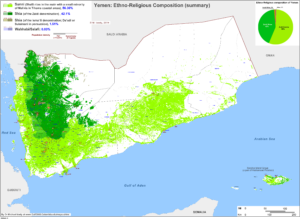
Saudi Arabia is trying to present the operation “Decisive Storm” as a regional coalition to support the “legitimate government” of Yemen against the advancing “pro-Iranian” Houthi militia. In the Western world, instead, the conflict is being inaccurately described as an attempt of a Sunni coalition to prevent Shia from coming into power.
The situation in Yemen is much more complex and entering into all its aspects would exceed the scope of this statement. However, we would like to state the following:
1. The conflict in Yemen is not a confessional war yet. It is a power struggle among rivaling groups, which is unluckily taking place against the background of a regional conflict between the West and Saudi Arabia on the one side and Iran on the other. Neither is this a conflict situation, where Yemenite State organs are fighting against Houthi militia. It is rather a fight between different organs of the decaying State. In fact, the Saudi attacks do not harm the Houthis as much as they do by destroying the infrastructure of the Yemenite State. Yemen became a further victim of a regional clash between the West and Iran. This threatens to drag Yemen towards confessional polarization in the region.
2. The Saudi intervention, which has never stopped since the 1963 Republican Revolution, has always been the major obstacle to democratization or to a compromise based on a just distribution of power and resources in Yemen.
3. The Zeidi confession is not equal to the Imam Shia (12er). It is a more moderate form of Shiitism which, on a theological level, is able to coexist with the Sunni confession. The conflicts in Yemen are based on political, social as well as local/tribal differences and, as such, they have never been tackled from a confessional point of view. The (Sunni) Yemeni Moslem Brother fraction itself, Al-Islah party, is lead by the Ahmar family, which is Zeidi.
4. Hashed and Bakil, the main two Zeidi tribes in the North, make up 20% of the Yemeni population. Under the Monarchy as well as under the Republic they played the major role in deciding who was going to rule Yemen. All parties responsible for this conflict are from Hashed: the former President Saleh, the Houthis and Al-Ahmar Family (leaders of the Moslem Brothers). In the past few years, the coalitions among these actors have been pragmatically swapped.
5. The fights with Houthi militia as well as the separatist movement in the South are the result of the Sanaa government’s inability to fulfill the resolutions of the National Dialogue Conference. This government itself was a compromise imposed by Saudi Arabia to safeguard its interests after Saleh’s resignation. It kept in power the Al-Ahmar family as well as pro-Saleh fractions.
6. While Saudi Arabia’s pressure on its allies prevents the Iran-allied Houthis from sharing power, the Houthi solo-attempt to take power seems to be short-sighted. No single power can permanently rule in a variegated land such as Yemen, at least without tribal and local compromises. A solution can only be achieved on the negotiation table between all Yemeni parties and not by foreign intervention.
7. The so-called coalition around the Saudi attack was formed because all participating Non-Gulf States receive financial aid from Saudi Arabia. It is indeed still unclear, if any of those States is willing to send ground troops and pay the blood toll of the Saudi adventure.
Stop the aggression against Yemen!
For a political solution of the Yemeni conflict based on democracy and participation!
For a democratic united Yemen!
Resolution by the Anti-imperialist Co-ordination, Austrian section of the Anti-imperialist Camp